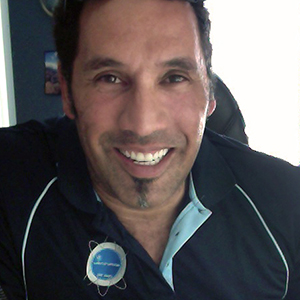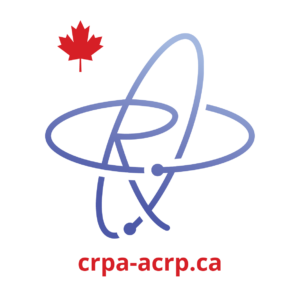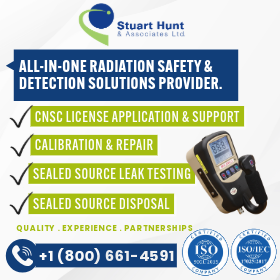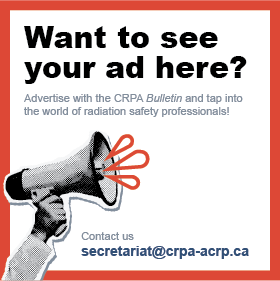Emotional Rescue: When You Need to be More than a Radiation Safety Professional

If you’re a Rolling Stones fan, you can hear that song in your head, Charlie Watt’s irresistible beat. You must be smiling right now; you’re happy. But, of course, this is a matter of cultural reference, knowledge, or even generation!
This song is a source of happiness for me. When this shy, inexperienced, and filiform 13-year-old was playing basketball in a team of 15- and 16-year-olds, our team captain sang this song to conjure bad fortune for our opposition, and we all sang along. Together. It felt good.
You’re most likely the captain of your radiation safety team—the inspirational element, the communicator, the social influencer at your workplace. Hopefully, you know how to touch your people. I am talking about something I was once unaware was so important—emotional intelligence. A wise man who once worked for the Canadian Nuclear Safety Commission used to talk about “people skills” while others were talking about “soft skills.”
After 30 years in this field, I have a few questions to ask about your emotions—you, the radiation safety officer, the radiation safety professional, the health physicist.
For one, which word in radiation safety officer (RSO) hits your heart directly? For me, the “O” finishes last in importance. “RS” is my life.
Then again, when you think about it, perhaps the “S” is the only thing that matters to anyone. Safety is our common song. You need to be able to come back to your family and friends after a safe day at work. That’s a given.
Do you only have time to discuss radiation safety with people, remembering that a dialogue means you have to make time to listen to others as well? No compliance-driven communication here, no directive email—a dialogue.
Make the time (a precious asset), even when the person you’re speaking with is telling you that wearing a lead apron, a lab coat, disposable gloves, or a dosimeter will impact their “productivity.” Yes, this takes time . . . and patience!
We need to take this time to build trust based on dialogue. People may become emotional and even contradict themselves when you try to take away things they once took for granted:
- We need dosimeters to work with ionizing radiation, and yet you’re about to remove them (Health Canada’s New Safety Code 30 for radiation protection in dentistry, coming later in 2022).[1]
- We need gonadal and fetal shielding for patients during X-ray procedures, and yet you’re now saying they are no longer required.
- Dose and pregnancy are . . . complicated even at low doses, and yet a nuclear energy worker can receive 4 mSv for “the balance of a pregnancy.”[2] That’s four times the annual limit for someone who is not a nuclear energy worker, but rather a member of the public.
You may need to be more than a safety officer for these discussions. You will need to revert to dialogue and trust that was built over time, because this may not feel like “common sense” at first, even if reliable references are widely available to back these decisions.
Dr. Melissa Généreux, a professor in Sherbrooke University’s Medical School, a former public health director during Lac-Megantic’s train accident, a consultant for Fort McMurray fires and flood disasters in La Belle Province, puts it this way. When trying to convince people to get their COVID shots, she recognizes that emotions are influencing behaviour more than simple access to information.[3] And guess what Dr. W. W. Webb, or other workers, are providing? Emotion, and not always positive emotion. You need to play the emotional game, too.
This article is about reaching the human in all of us using common references. We are in radiation safety to protect a very complex emotional machine. The man-machine (Kraftwerk-1978) is living in a society; wearing emotions, uncertainties, biases, and values around his neck like a very colourful scarf over an exuberant “puffy shirt” (Seinfeld-1993).
Still no smile with these references? Must be a generational thing . . .
OK, then let’s try to find common references to match that scarf—values we can use as a common song, so we can sing it all together, no matter our personal experience or background, to create positive and strong emotions at the workplace. Common references make a culture.
So, instead of “Emotional Rescue,” we might want to share that classical Symphony No. 5 that starts with Fate, knocking on your door. (No reference needed here . . . I’m talking about the four most famous and powerful notes in musical history. OK, just in case: Beethoven 1808).
What is the fate of your radiation safety program? You and your orchestra will need to determine the destiny of your program and, along the way, interpret a very charismatic opus—the radiation safety culture symphony.
Safety and cultures are very strong notes to your rescue.
[1] Radiation Protection in Dentistry – Recommended Safety Procedures for the Use of Dental X-Ray Equipment – Safety Code 30 (2022)
[2]AAPM Position Statement on the Use of Patient Gonadal and Fetal Shielding
[3] https://www.lapresse.ca/actualites/chroniques/2022-01-27/portrait-robot-du-non-vaccine.php
Résumé :
Sauvetage émotionnel : Quand vous devez être plus qu’un professionnel de la radioprotection
Dans cette édition, Stéphane Jean-François vient à votre rescousse sur le plan émotionnel. Oui, vous, le responsable de la radioprotection, le professionnel de la radioprotection, le spécialiste en radioprotection. Il vous rappelle que votre travail consiste à aider les gens et que, pour atteindre ces gens d’une façon signifiante, vous devez être plus qu’un simple responsable de la sûreté. Vous devez avoir un dialogue fondé sur une confiance qui s’est développée avec le temps.

Stéphane Jean-François
2022 is a special year for Stéphane Jean-François: it marks 30 years of experience in radiation safety, including 27 years as a radiation safety officer and 10 years as a certified health physicist, trainer, and (when required) co-president and co-owner of Radioprotection Inc, a company celebrating 40 years of existence in 2022. Before this mythical year, Stéphane was a CRPA president, CRPA director, chair of some CRPA committees, editor in chief of the CRPA Bulletin, and recipient of the Founders and Meritorious Service Awards. In 2022, he’s starting to slowly let up the pressure on the professional accelerator pedal in order to enjoy life and look at the big picture—eating popcorn with his loved ones.




